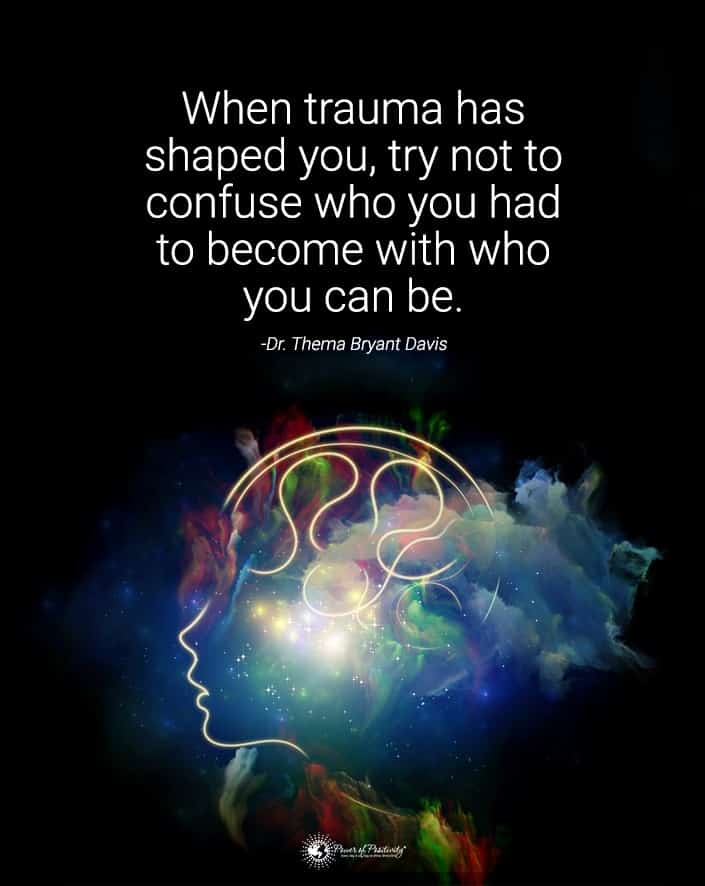Addictive personalities refer to a set of traits that are believed to indicate a higher risk for someone developing an addiction. There is little universal agreement on these exact traits. But in general, they relate to a tendency for someone to rely on unsafe habits to an extreme degree to cope with problems.
Addictive personalities are a touchy subject. And addiction is such a broad term that it’s hard to pinpoint exact behaviors to attribute to them. Still, here are 5 behaviors that reveal someone has an addictive personality.
1. An Inability To Self-Regulate
Self-regulation refers to the ability to know when enough is enough innately. For example:
- At a buffet, you can know when you’ve eaten more than enough. Thus, you can stop once you get a fair amount of fullness in your stomach
- When enjoying a nightly glass of wine or bottle of beer, you should not reach for a second, third, or fourth. Nor should you drink yourself into a stupor
- You can tell when you need to stop doing a specific activity and take a break to do something else. Or, you can realize when you’ve spent too much time on something and will give yourself a break
 Of course, as a human being, you will occasionally let go of those limits. You may have eaten a whole tub of ice cream after a breakup, let loose and got hammered for a weekend birthday party, or spent two days straight on a big project. But even that has an element of self-regulation to it. You know it’s a once-in-a-while deal. So you feel okay doing it, or you may even feel a little bad and vow not to do it again soon.
Of course, as a human being, you will occasionally let go of those limits. You may have eaten a whole tub of ice cream after a breakup, let loose and got hammered for a weekend birthday party, or spent two days straight on a big project. But even that has an element of self-regulation to it. You know it’s a once-in-a-while deal. So you feel okay doing it, or you may even feel a little bad and vow not to do it again soon.
An individual with an addictive personality will not be able to regulate themselves. They will not know when to stop, how to stop, or how much is enough. The idea of moderation doesn’t process with them, or, if it does, they pursue the concept of a rewarding feeling even when it’s destructive. If they like the buzz of something, they’ll keep doing it again and again, and when that buzz fades off, all they want to do is chase it even more.
2. Extreme Types Of Behavior
Extreme behavior can refer to any conduct that is out of what is socially considered the “norm,” typically performed over a prolonged period of time or constantly as a part of someone’s personality. This does not necessarily refer to neurodivergence, instead referring to any acts that are overly frowned upon due to the harm they may inflict on the person themselves and the people around them. Here are some examples of extreme behavior:
· Impulsiveness
Impulsive behavior refers to the act of acting without considering the possible impacts of those actions. An impulsive person may engage in activities with obvious adverse effects without thinking ahead, essentially following whatever whim they have with poor planning and misplaced positive thinking. This is a common hallmark of an addictive personality.
· Disconnectedness
Those who are dealing with many severe and difficult emotions, such as anxiety or depression, may withdraw into themselves and attempt to manage their issues unhealthily. This results in the use of addictive substances or means to feel better. Therefore, they become dependent on those substances and building up a tolerance over time that bleeds into a full-blown addiction.
· Compulsion
Individuals who develop addictions may show symptoms of obsessive-compulsion, according to research. Essentially, they may become overly rigid in their efforts to manage impulses. Those efforts may still turn to other addictive acts and substances to build up a prolonged habit over time. This can often lead to habitual and compulsive addiction to substances, following an obsessive schedule or pattern to maintain it in a way that they desire.
3. Negative and Harmful Behavioral Traits
An individual with an addictive personality may be more prone to negative behavioral traits that involve malicious acts towards others. Even if they feel a sense of remorse for these actions, they are willing to behave this way to get what they want to further their addiction or escape consequences for their addiction. While not all addicts exhibit these traits, most who are lost in their addiction do. Here are some examples:
· Lying
Lying is a central part of addiction. Not only does an addict lie to themselves, but they lie to others about their state. They say they’re okay and that they have it under control, and they lie even more to get to the subject of their addiction. Denial is a powerful thing to be influenced by, and sometimes, to an addict, lies feel like truth.
· Blame-Shifting
An addict remains an addict for as long as they blame others for their addiction. Maybe life was unfair to them. Maybe someone’s actions drove them off the edge. Or maybe they’ll even blame the subject of their obsession for the fact that they’re addicted. It’s an endless cycle of never taking responsibility or accountability.
· Manipulation
To get to the subject of their addiction, addicts manipulate others. They’re dependent on that subject and will do anything to get a hold of it while staying afloat and alive, even if it means making everyone believe things that aren’t true. Their emotional stories garner money, their promises garner support, and their expressions of love make others feel like accepting their empty words.
 4. The Desire For Risk and Feeling
4. The Desire For Risk and Feeling
Those with addictive personalities may feel an innate desire to try out things that can turn into addictions. While it’s OK to be bold and leave your comfort zone, there’s a point where it becomes destructive, and that’s a line many with addictive personalities don’t see. Here are some traits of this variety common in addictive personalities:
· Sensation-Seeking
The act of looking for “sensations,” meaning new sources of novel experiences, adrenaline rushes, and reward responses, can be part of an addictive personality. The drive to seek that has not been experienced before opens the door to potentially dangerous experimentation, ranging from alcohol to drugs and beyond, say studies.
· Risk-Taking
Those with addictive personalities like to take risks and do things that could be dangerous. There are many possible reasons for it, but no one can deny that addictive subjects and substances are risky enough to be attractive to those with this trait.
· Adventure-Seeking
There’s nothing wrong with a little adventure, but there’s a balance between positive thinking in spontaneity and an addiction to the rush that comes with that. Those with addictive personalities may seek the use of anything that gives them a dopamine rush, which is often a common trait in people with high levels of the feel-good neurotransmitter dopamine and, therefore, low sensitivity to regular sources of that hormone.
5. Being An Addict
Let’s face it. The easiest way to tell if someone has a so-called addictive personality is to see if they already struggle with other addictions. All the other symptoms can appear on someone who doesn’t develop an addiction at all, whereas an actual addict may have displayed little to none of the other symptoms before falling into addiction.
Addiction counselors hotly debated the concept of an addictive personality over the years. A wide range of experts even debunked it. It’s not a positive identifier. Indeed, it may actually be harmful to addicts and those in danger of falling into addiction.
The argument involves a lot of nuances. On the one hand, in favor of the idea of an addictive personality:
- The ability to take note of certain personality traits and dimensions that put people at risk of addiction sounds helpful for diagnosis and treatment
- Awareness in an individual who meets the definition of these traits can help them to prevent their risk of developing bad habits that could lead to addiction
- Human beings have free will; individuals can make decisions that wind up leading to addictive patterns with full awareness of their actions, and it takes a certain kind of personality to do so willingly
- People who take risks are more likely to encounter things that could be addictive in the first place
On the other hand, in favor of dropping the idea of the “addictive personality:
Addiction’s basis lies in chemistry; it’s all about how the brain responds to hormones and neurotransmitters, and personality often has less to do with it than circumstances and developed mental disorders; this is scientifically supported
- You may have, over the course of your life, seen people who became addicted to things despite not having any of the stereotypical signs of an addictive personality
- The label of an “addictive personality” stigmatizes addicts as individuals who manipulate, gaslight, lie and commit crimes
- People who don’t have the traits of an addictive personality may believe that they are safe from it
- People who do have the traits of an addictive personality may believe that they cannot overcome addiction as it is hardwired into their brains and the kind of people they are
- There is an all-around lack of evidence that supports the label of an “addictive personality.”
In short, the only “true” sign of an addictive personality may be whether one is or isn’t an addict. Thus, it is best not to get too wrapped up in these ideas. Positive thinking towards yourself and the people around you is more beneficial than assigning labels based on traits.
 Final Thoughts On Some Behaviors That Reveal An Addictive Personality
Final Thoughts On Some Behaviors That Reveal An Addictive Personality
Addictive personalities are merely a set of traits, and they do not define actual addicts. In itself, addiction is a dangerous and difficult thing to overcome. And the fact that it’s so taboo to discuss in society adds to the shame that addicts may feel when seeking help. It also means stigmatization that can harm addicts, restricting their access to treatment.
If you believe you have an addiction, ask yourself: are you reliant on a particular behavior or substance? Do you crave or desire that subject and feel like you cannot function without it? Have you done things you’re not proud of to obtain this subject? If that’s the case, whether you have an addictive personality or not, you should speak to a mental health professional or reach out to an addiction crisis hotline or center. You are not alone, and help is available to you.
If you believe that someone you care about has an addiction, begin by seeking further information regarding the subject of their addiction. You will be able to learn through this method what the best ways to help them are. Remember, many addicts don’t want help and will fight you if you attempt to aid them. You can reach out to a mental health professional. Or, you might reach out to an addiction crisis center for help and advice.




















